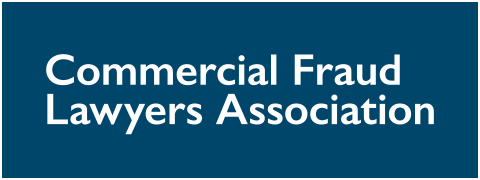Articles
Search Orders: Back to the Future
Steven Bird of PCB Litigation LLP considers the Court of Appeal's judgment in TBD (Owen Holland) Limited v Simons & Ors [2020] EWCA Civ 1182 and considers whether it signifies a change of approach that might result in “imaging orders” largely replacing search orders.
Alert: yes we can. Remote Justice. The New Norm!
This article will (i) review the recent legislation, guidance and protocols as they applies to commercial litigation in the High Court (ii) identify some of the key practical challenges for court users and judges, and (iii) raise some (so far) unanswered questions, in particular, whether any or all of the measures that are now being introduced will continue once the pandemic subsides and the courts reopen fully.
Article by Jane Colston (Partner) and Ravinder Thukral (Partner) of Brown Rudnick LLP
A freeze on fraud?
Jon Felce of PCB Litigation LLP discusses the increase of fraud in economic crises and how the English legal system is well placed to tackle this.
When the Banks Must Say No - the Quincecare duty
Handout from talk given by Paul Downes QC, Stewart Chirnside and Simon Oakes of Quadrant Chambers on 3 December 2019.
Commercial Fraud Litigation - London pow-wow, June 2019
Commercial Fraud Litigation article discussing current trends. Authors: Jane Colston, Gerald Byrne, Jessica Lee and Joanna Curtis of Brown Rudnick LLP
This article was first published in the IBA Litigation Committee newsletter in September 2019, and is reproduced by kind permission of the International Bar Association, London, UK. © International Bar Association.
Unlawful Means Conspiracy and Knowledge of Unlawfulness - Continued Chaos
Matthew Bradley of 4 New Square considers whether a claimant must prove knowledge of the fact of unlawfulness on a defendant’s part, in order to establish an unlawful means conspiracy. This article discusses two divergent first instance decisions handed down in February and May 2019 (Stobart Group v Tinkler and The Racing Partnership Ltd v Done Brothers), each of which follows a different line of Court of Appeal authority on the point. It addresses how this set-to goes to the very heart of the tort of unlawful means conspiracy, and the potential implications for litigants seeking to bring claims in the economic torts.
Financier Worldwide - Corporate Fraud Roundtable
Corporate Fraud roundtable discussion reprinted from November 2018 issue of Financier Worldwide magazine.
APP Cyber Fraud Commercial Litigators Perspective
Shail Patel discusses the APP ("authorised push payment") fraud and related cyber frauds and how they have featured heavily in the financial and mainstream press lately. These scams involve the victim being tricked into making an instant electronic payment to fraudsters instead of the intended recipient.
‘Hodl’, ‘Hit the moon’, ‘Lambo’, ‘Miners’
Brown Rudnick’s Jane Colston considers asset tracing and enforcement across the blockchain in a new article published by Legal Business.
Defeating Dissipation - Recent Legal Developments
Jon Felce of PCB Litigation LLP examines developments in relation to freezing orders, contempt of court, new causes of action, the use of insolvency procedures and enforcement.
We welcome all contributions, short or long, in relation to recent developments in commercial fraud and any other topics that may be of interest to members.
If you would like to submit an article, please email Charles Thomson.

